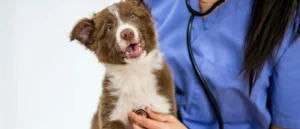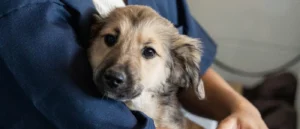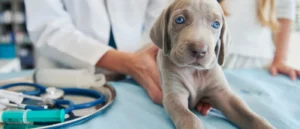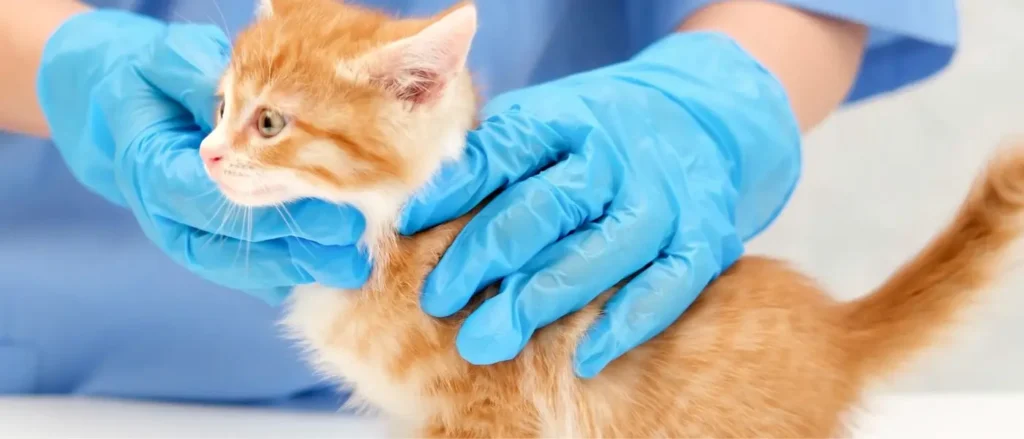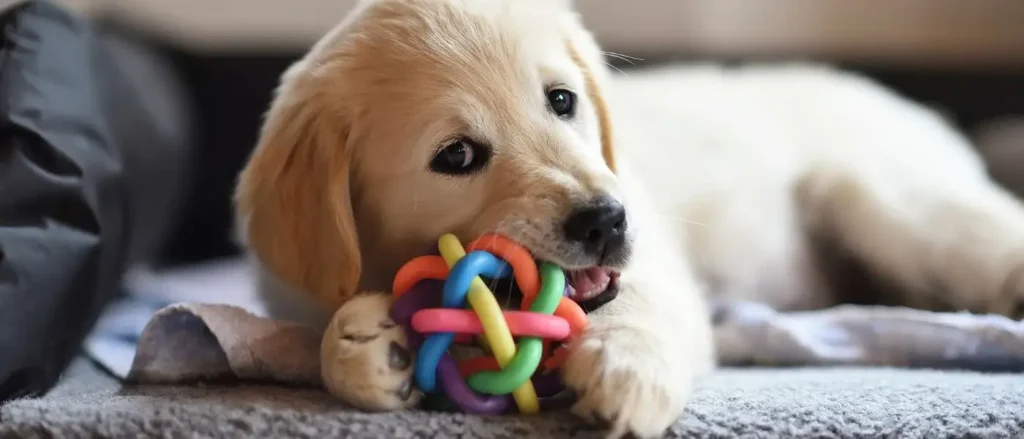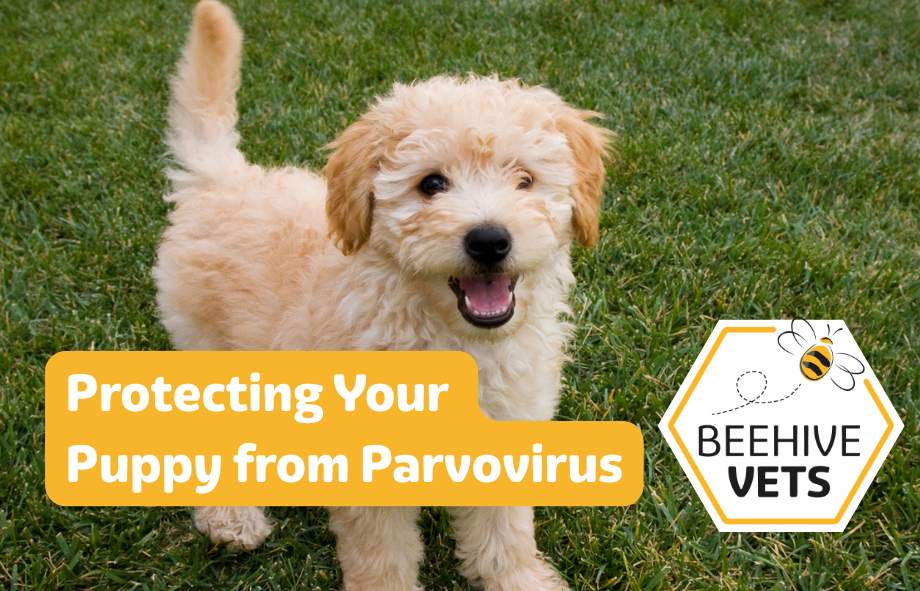We understand that bringing your puppy to the vet for the first time can feel a little overwhelming—for both you and your new pet! It’s completely normal not to know what to expect.
That’s why our vet, Olivia, has put together a simple, step-by-step guide to help you feel more prepared. In this blog post, she’ll walk you through what to expect and how to get ready for your puppy’s first vet visit.
When should you take a puppy to the vet for the first time?
Here at Beehive Vets, we like to see puppies when they are a new arrival in the home so we can give them a thorough health check and get started on any vaccinations. We can answer any questions you may have and advice on future vaccinations and routine flea and worm treatment.
If you are worried that your puppy may be unwell, it is even more important to examine them as younger animals can suffer more serious symptoms than adult pets.
Preparing your puppy for their first visit
Make sure you please bring your puppy (of course!), along with any paperwork or records provided by the breeder, including vaccination records and details of any flea or worm treatments your puppy may have already received. Ensure you have a suitable carrier or a helper to hold your puppy, and if your puppy has not completed their vaccination course, please keep them off the floor for their safety.
Travelling to the vets
To be safe on your journey to us, if travelling by car, your puppy must be suitably restrained. This could be with a harness, pet carrier, cage, or dog guard. This is important not only for your puppy’s safety but also for the safety of the driver and others as the puppy must not be able to reach and distract the driver.
What happens during the first vet appointment for your puppy?
Puppy health check
When you bring you puppy to us for the first time, they will receive a full clinical examination. This includes a nose-to-tail check over: eyes, ears, nose, mouth including pearly white teeth, heart and lungs, tummy, joints and growing bones and checking that their microchip is working.
Puppy worming
Your puppy may have been wormed by the breeder, and it is always useful for us to know what product was used, so it may be helpful for you to have this information to hand.
We regularly worm puppies to protect against intestinal parasites that can cause diarrhoea, weight loss, anaemia and even cause blockage of the intestine that requires surgery to correct!
Puppy flea and tick protection
Fleas, ticks and mites are all parasites that live on the outside of the dog (ectoparasites). These can cause health issues from skin irritation through to anaemia, which can be prevented with timely application of an effective treatment.
Some over-the-counter treatments are now ineffective against some ectoparasites, due to resistance, so it’s important to check with the vet what the best treatment is to prevent an itchy puppy! Ectoparasites can also spread other diseases – such as tapeworm or Lyme’s disease – so it is doubly important to keep your new puppy well protected.
Puppy neutering
Neutering is something that will be discussed at your puppy’s first vet appointment. We neuter dogs for several reasons: –
- Prevention of unwanted pregnancies.
- Unspayed dogs are at risk of pyometra, an infection in the uterus which can progress quickly and be very serious.
- Phantom pregnancies are a common occurrence in unspayed dogs, and this can lead to behavioural problems and infected mammary glands.
- Neutering a female while young reduces the risk of mammary cancer.
- Neutering a female also eliminates the risk of ovarian cancers.
- Neutering a male can prevent unwanted behaviours, but it can also worsen certain types of anxiety. This is something that can be discussed in detail if you are considering having your male dog neutered and should be decided on a case-by-case basis.
- Neutering is something to consider your new puppy but we never neuter at less than 6 months of age, and often recommend delaying until over a year, so it is one decision that can be left for the time being.
Microchipping your new puppy
Microchipping puppies is a legal requirement, and this needs to be done by the time they are 8 weeks old. The law states that the breeder should have chipped your new puppy before they go home with you, so it is important to check with them and ensure have all your new puppy’s paperwork before bringing them home.
We will check your puppy’s chip with a scanner when they arrive at your appointment, so we will always have their microchip number on file.
Puppy vaccinations
We routinely vaccinate against 4 infectious diseases: Distemper, Hepatitis, Parvo virus and Leptospirosis. Some dogs may also benefit from a Kennel Cough vaccination, especially if they meet a lot of other dogs or will be going into kennels.
Your new puppy will need a minimum of 2 puppy vaccinations as part of their primary vaccination course (usually at 8 and 12 weeks), this is followed up each year with an annual booster and health check.
If there is a high risk of parvovirus, an additional vaccination can be done at 16 weeks to provide extra protection against this nasty disease.
Making your first visit a positive experience
It’s really important that your puppy gets comfortable with visiting the vet—this helps make future visits easier for you and far less stressful for them.
To set the tone for a positive first experience, start by gently handling your puppy at home to get them used to being examined. Bring along some tasty treats, a familiar toy or blanket, and any paperwork or health records you have. If your puppy isn’t fully vaccinated yet, keep them off the floor for their safety.
Staying calm and reassuring during the visit goes a long way, and you might also consider booking a quieter time, practising car travel beforehand, or arranging a casual ‘happy visit’ to help build your puppy’s confidence at the clinic.
A lifetime of care starts here
A lifetime of care starts here, and it is important to us to make your puppy’s first vet visit as stress-free (and exciting) as possible to build up their trust in us for the future.
Contact the practice now to register your new furry friend with us; we can’t wait to meet them and see them grow!

